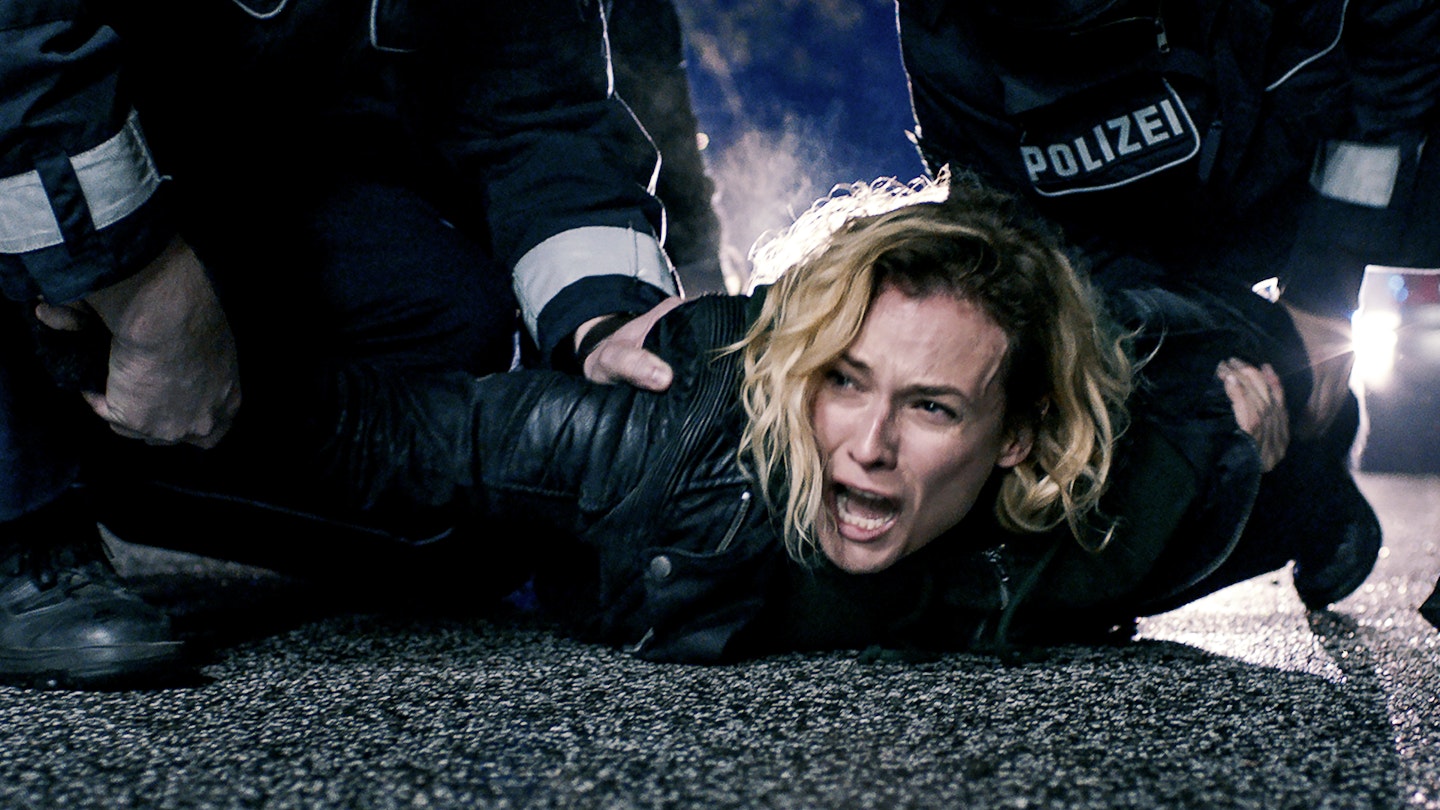Fatih Akin’s In The Fade is three films in one. It starts as a coruscating study of grief under unimaginable circumstances, segues into a gripping courtroom drama, then takes a last-act swerve into a vigilante thriller, all marinated in the context of the rise of the far right in Germany. If the last third doesn’t really live up to the unbridled power of the first and the genre-pleasing qualities of the second, the film as a whole is held together by a never better Diane Kruger, making her German-language film debut, and deservedly winning Best Actress at last year’s Cannes Film Festival.
The first section is an unflinching study in loss. Sketching her loving relationship with her Kurdish husband (Homeland’s Acar) and son in quick, effective strokes, Akin knocks Katja Sekerci (Kruger) for six by blowing up her loved ones in a nail bomb attack, detailing the aftershock in forensic detail. Katja goes coffin shopping for caskets in two different sizes. The cops harangue her about her husband’s shady past and, in a stunningly mounted scene, almost does the unthinkable in a bathtub. Worst of all, she is forced to listen to the report of her dead son’s injuries in cold, detached tones. Neither Akin nor Kruger look away from the horror of the moment — they make Katja’s pain palpable.
If you’ve only ever seen Kruger in the National Treasure series, nothing will prepare you for what she brings to In The Fade.
After a Neo-Nazi couple (Hanna Hilsdorf, Ulrich Friedrich Brandhoff) are accused of the bombing, the film shifts to become a well engineered courtroom drama (based on real-life trials), the kind Hollywood regularly used to make in the ’90s. There’s a dashing prosecutor (Denis Moschitto) who gives applause-worthy speeches, a defence lawyer (Johannes Krisch) with a bald head and a big old scar, game-changing last minute witnesses, a perilous cross-examination, and a terrific small turn by Ulrich Tukur as the father who believes his Hitler-loving son is guilty. Fans of Brian De Palma will be delighted that Akin constantly breaks out the split diopter, putting Kruger’s face in close-up while keeping the background courtroom drama in pin-sharp clarity.
If you’ve only ever seen Kruger in Troy, the National Treasure series or even Inglourious Basterds, nothing will prepare you for what she brings to In The Fade. Tattooed and smoking cigarettes for Germany, she gives the film a real and raw potency, by turns bruised and vulnerable, then angry and resolute. She even makes the disappointing third act jump into Liam Neeson thriller territory compelling. From its nuanced, layered start, In The Fade goes on a sliding scale towards conventionality until a final moment that will leave you reeling. Then you’ll start talking.
